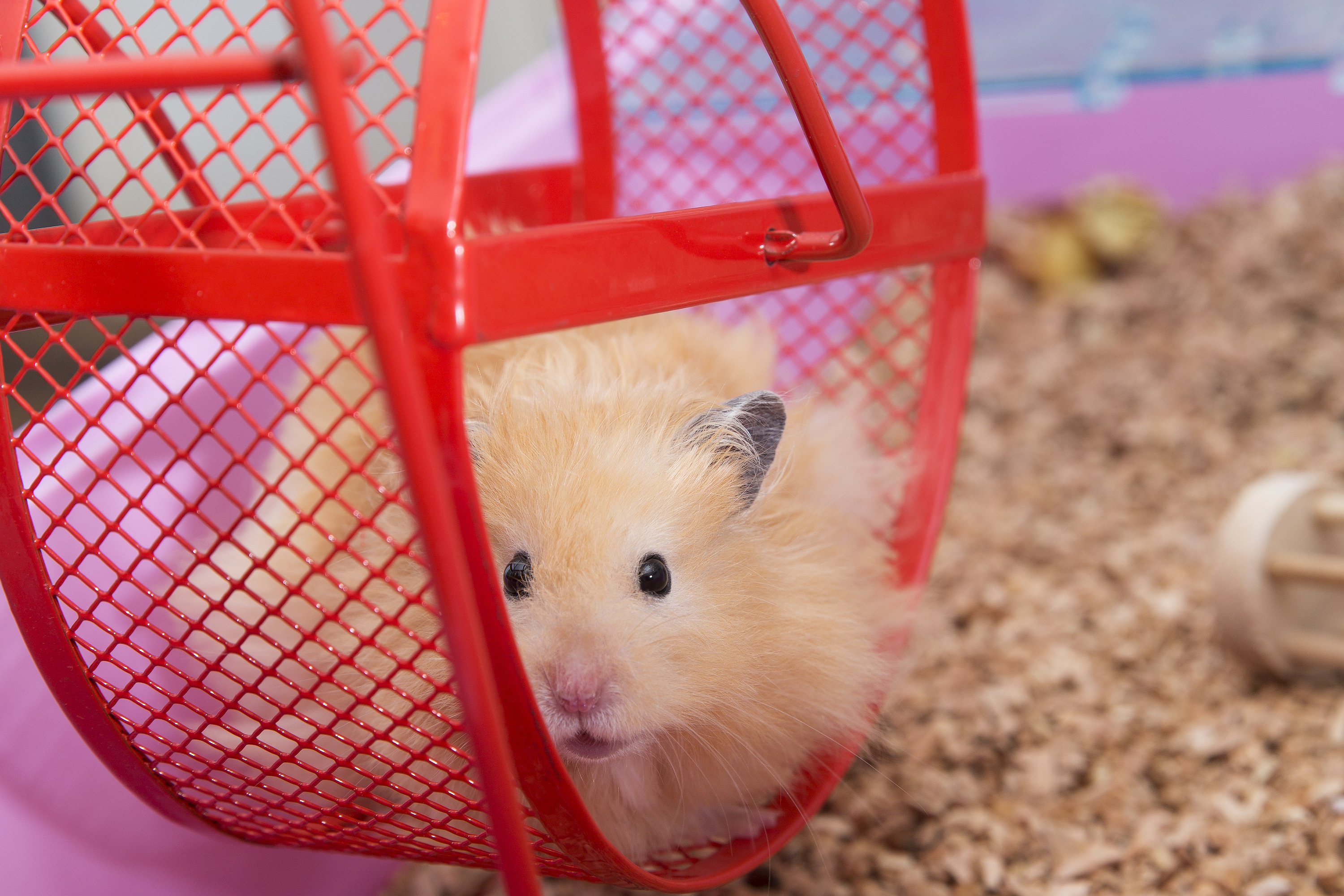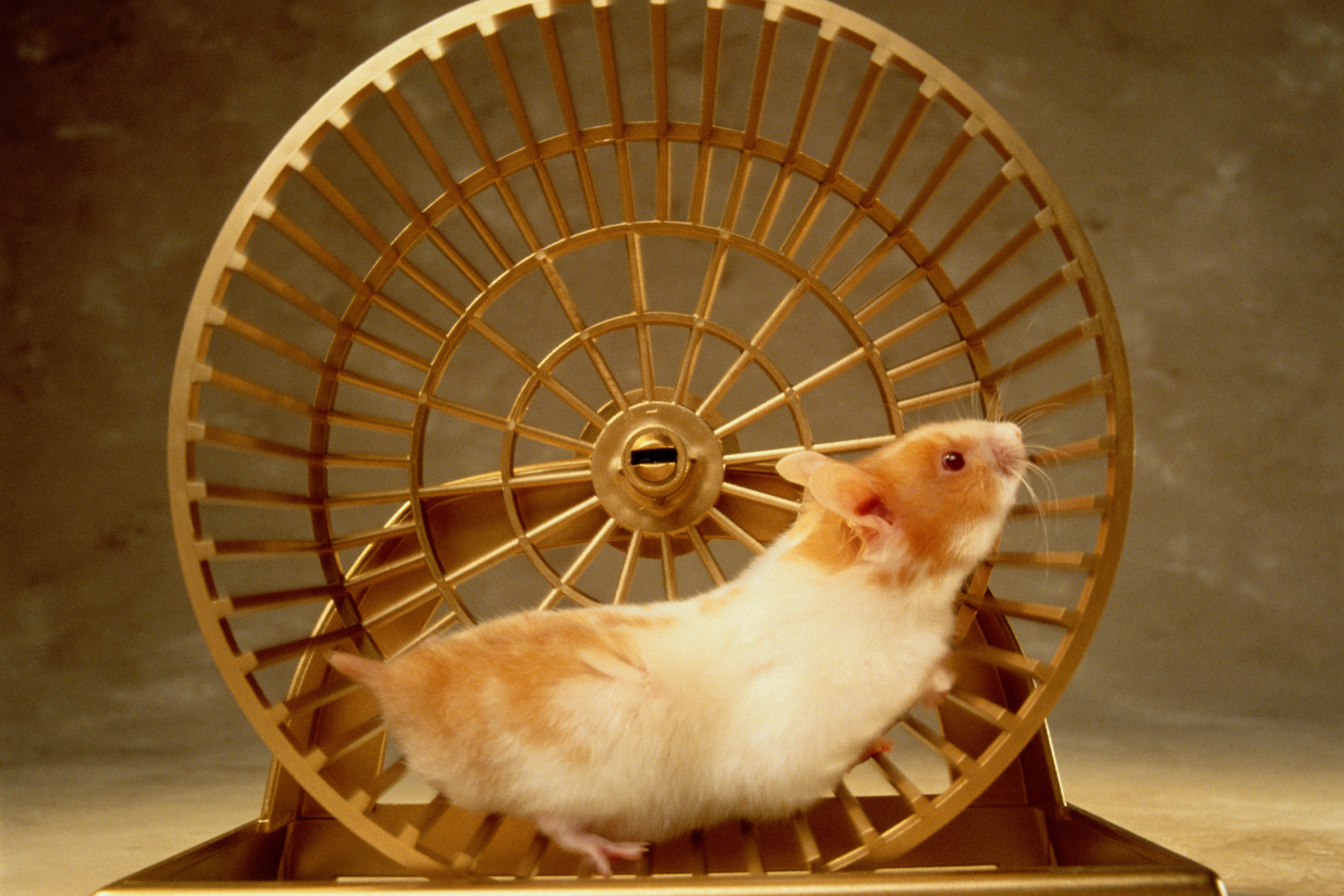Little did you know, when you brought home your hamster you actually adopted a tiny marathon runner. These miniature creatures are well known for loving that wheel, but it’s hard to imagine how much they actually train until you have one constantly working out in your own house. The good news is they love to run and it keeps them happy and healthy, as long as it’s done in moderation. But why do hamsters run on wheels? Like so many things about our pets (and possibly ourselves) the answer lies mostly in their evolution — and ours.
Why do hamsters need to run on a wheel?
Small pets have big exercise needs. In the wild, hamsters (or at least their ancient ancestors) run four or five miles per night — which is a lot for the little guys! In a cage, that means they need to make up that mileage on the wheel since they don’t have a large landscape in which to forage. Imagine if you only had one room to walk in to get all of your exercise. Luckily, hamster wheels and other toys help keep your rodent fit, engaged, and content. A bored animal might try to escape, turn lethargic, or even get aggressive. As a pet owner, you should provide plenty of enrichment to ensure that your little one stays occupied.

Are hamsters happy when they run on a wheel?
While running is an important part of a hamster’s need for exercise, it also releases endorphins, exactly as it does in human beings. If you have ever experienced a runner’s high, you understand why your animal adores her routine. For extra confirmation that it’s all in good fun, watch your critter or take videos of her rocking out on her cage accessories. Just make sure it doesn’t get too excessive. Everyone’s feet get tired sometimes and these cuties can develop sores or other issues from too much running.
How do I stop my hamster from running on a wheel?
As mentioned, your energetic creature needs to blow off steam, and running is a great way to do it. However, there are other things they can do to hit their daily exercise quota. Pets who seem to be training too much might need a break, so try out a few of these tricks to remedy the situation. Sometimes they go at it so hard because they’re feeling cramped and want more room to roam, and you should oblige them as best you can. Set up a spot in the house, like a playpen, for the both of you to get some quality bonding time. Having that extra space, even for just a few hours per week, will take the edge off of feeling cooped up. Also, check to make sure that the cage is big enough. While most hamsters prefer to live alone, they still need plenty of room to spread out.

What else should I provide my hamster for exercise?
It’s not just exploring outside of the housing that will ease their urge to run a nightly 10K — you should also offer other entertaining playthings. Hamsters often love to climb, crawl, shimmy, and burrow, so you want to provide opportunities for them to explore inside the cage too. They won’t necessarily take to all of those activities though, which means you can try out a thing or two and see what sticks. Invest in some tubing, ladders, tunnels, and other toys to round out the funhouse and keep your furry friend’s mind and body busy.
No matter what kind of personality your pet has, they’ll love to get in their daily steps. Think of it as an opportunity to expand your horizons, too. Feel free to squeeze in your daily workout while they’re doing theirs or pull them out for a little human/hamster bonding time. Just make sure to always keep a close eye on your hamster, even when in a pet-safe enclosure. Lastly, no one likes the same thing all the time. Even if you find a perfect way to set up the cage, you’ll need to mix it up now and then. During one of your weekly cleanings, put everything back a little differently, or swap in a few new toys just to keep everything interesting.
Editors' Recommendations
- A simple guide to what to feed tadpoles in your aquarium
- Is my rabbit pregnant? 5 telltale signs you should know
- 3 reasons not to give pet rabbits, baby chicks, or ducks this Easter
- Are female betta fish worth it? Here’s why you should consider getting one of these pretty fish
- Looking to add corydoras to your aquarium? Here’s what you need to know first




